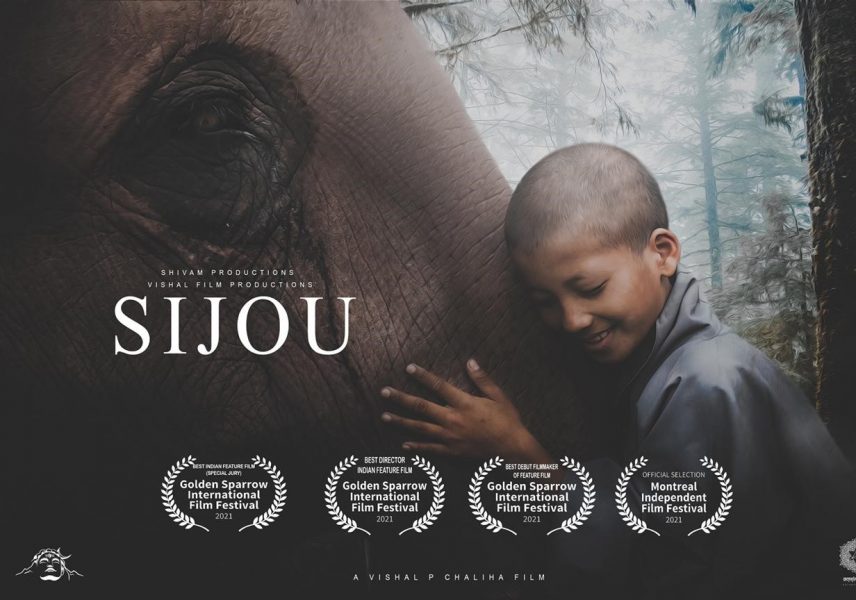
Bodo film recreates horror of Bhutan’s slavery system at Goa film festival

Award-winning Assamese Bodo film Sijou, recently screened at the ongoing 52nd International Film Festival of India (IFFI) in Goa, has given audience much to contemplate about by laying bare a crude tradition of slavery practised in the Bhutan of the 1950s.
The film which bagged three awards at the Golden Sparrow International Film Festival earlier this year, revolves around its central character Sijou (played by Bijit Basumatary), a Bodo Kachar boy living in the village of Saikhong Guri near the Indo-Bhutan border. Sijou’s perfect childhood, full of mischief and adventure with friends, takes a shocking turn one day when he falls victim to the age old Feudal Land Tenure System in Bhutan, a form of slavery practised in the country till 1958.
As money had not been introduced in Bhutan during that period, the slavery system involved people paying taxes to kings and feudal lords in kind, by offering free labour or animal or produce from their agricultural lands. Whoever failed to pay taxes were taken as slaves and subjected to bone-breaking labour, which often involved toiling for long hours. Even children, women and senior citizens were not spared. While children were sold in slave markets, women either worked as sex slaves in brothels or were made ‘comfort women’ in the harem of kings. Those who resisted against the practise or tried to escape were brutally beaten and killed.
The practice prevailed until king Jigme Dorji Wangchuck introduced land reforms and abolished the slavery system in 1952. People who lived on the Indo-Bhutan border too were subjected to this kind of slavery and were later recognised as refugees and eventually given citizenship.
Also read: Mumbai terror attack, Rajini’s big brother act, Drushyam 2 land on OTT
Set in this backdrop, the film chronicles Sijou’s journey from an innocent childhood to a life of slavery to self-discovery.
Having lost his mother several years ago, Sijou lives with his father and like every other children in the village, plays, swims and throw tantrums. Sijou and his friends often steal melons from a farmer’s house to play with it. But one day, Sijou is caught red handed while stealing melons and is presented before the village headman. The headman orders Sijou’s father to pay a bag full of rice to the farmer as a form of punishment. His father pays the price and things get back to normal until one day the Gongars (Bhutanese officials) come to the village to collect tax. Sijou father has nothing to offer as he has already given his bag of rice to the farmer. Denchen (Jayanta Narzary), the governor appointed by the king shows no sympathy and takes the father-son duo as slaves. Sijou’s father succumbs to fever at Denchen’s palace, leaving his son alone to bear the atrocities of the governor. Denchen plans to sell Sijou in the slave market, but Karma (Omprakash Kherkatary), Denchen’s ‘Man Friday’, unable to bear the atrocities meted out to women and child slaves, helps Sijou escape. Karma is killed while on the run. What happens to Sijou forms the rest of the plot.
The historical drama, said to be based on true events, is written and directed by Vishal P Chaliha and produced by National Award willing filmmaker Preeyam Kherkatary Chaliha. The film won the awards of Best Director, Best Indian Feature Film and Best Debut Filmmaker of Feature Film at the Golden Sparrow International Film Festival, held at Chennai in February this year.
It is slated for a theatrical release later this year.


